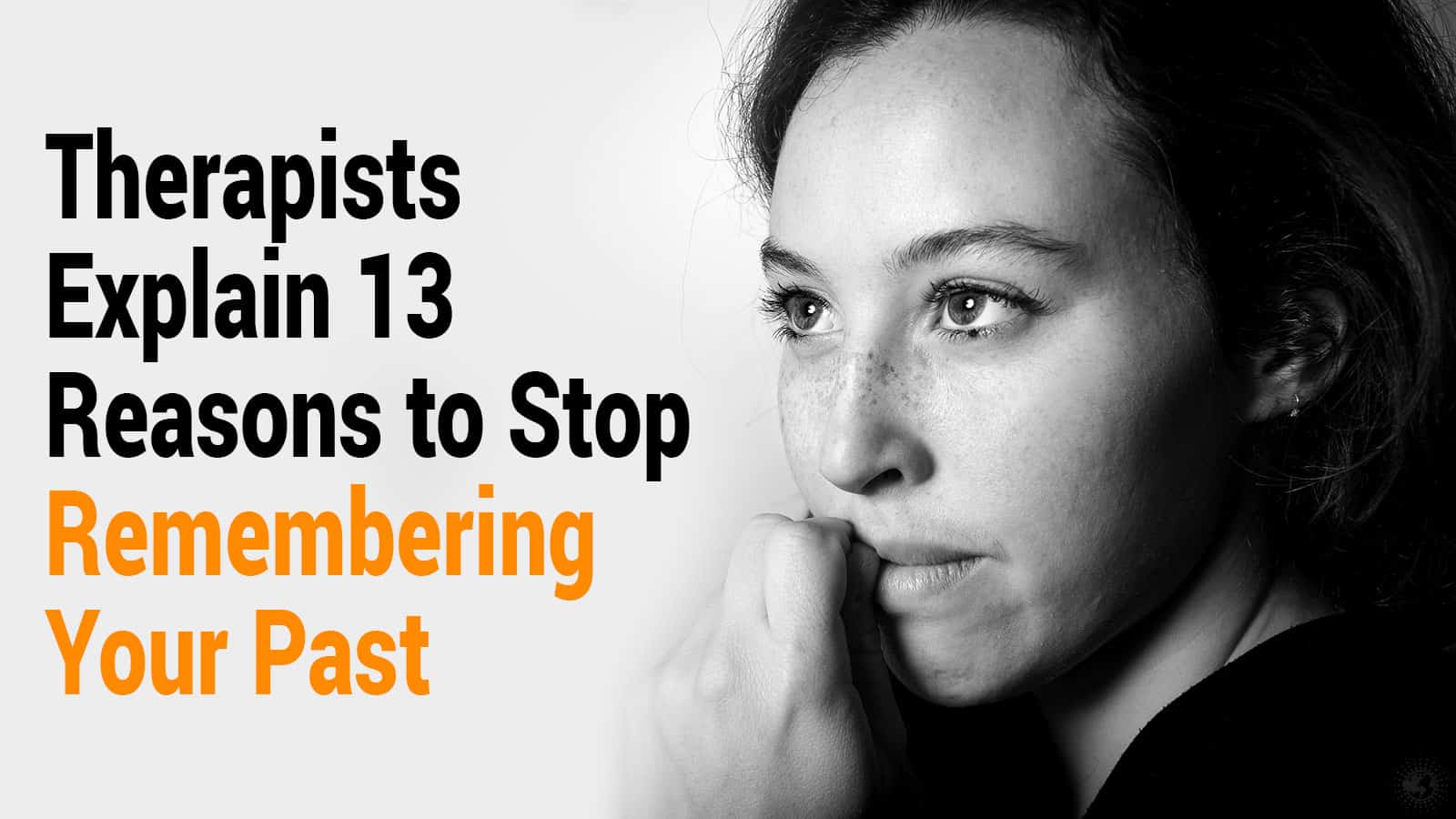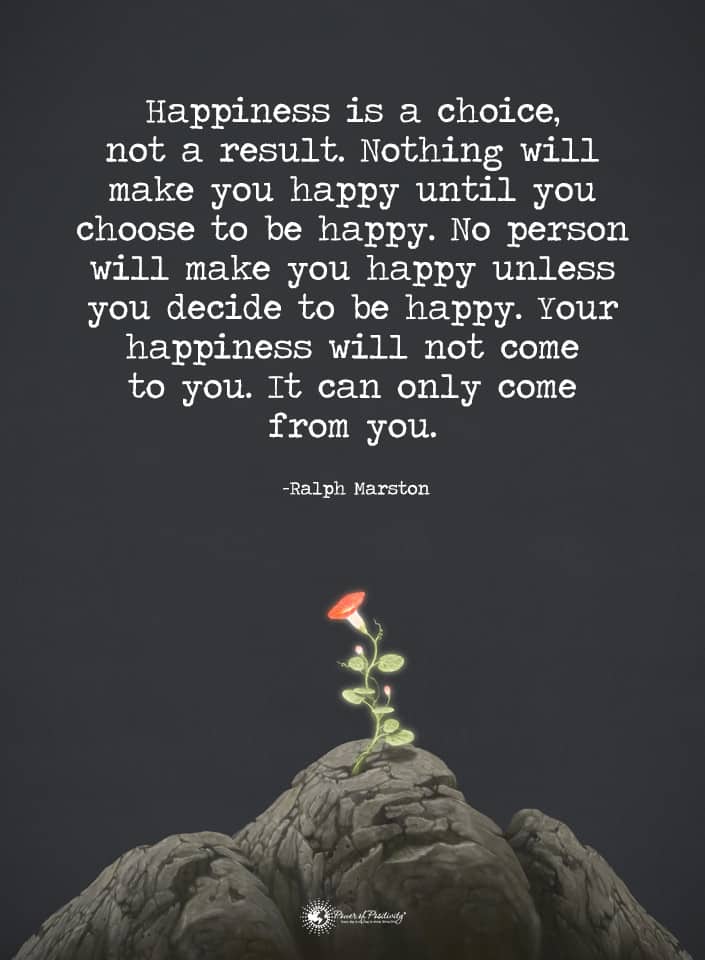The past is a part of who we are. It shapes us, teaches us, and affects our character development and growth. But remembering your is only beneficial if we learn from and leave it behind.
Many people find that they live somewhat in the past. They can’t stop thinking about what happened before, and it traps them in a perpetual rush of negativity that you can never really fix. It’s not healthy, even if its familiarity is comfortable.
Here’s how therapists explain 13 reasons to stop remembering your past.
1. Remembering The Bad Is A Tough Cycle To Break
When you think about bad moments from your past, you form a clearer idea of them in your head – one often conflated with more negativity. This energy feeds into your mood, causing you to lose positive thinking, thus increasing the chances of you recalling your past this way again.
According to Amy Morin, a licensed clinical social worker, author, and psychotherapist, rumination can become so deeply ingrained in you that you struggle to break out of these destructive thought patterns. It’s like a wound – it scabs over as it begins to heal, but you pick at it again, causing it to reopen.
2. It Stops You From Moving On
Recalling your past too much causes you to live in it emotionally, trapping you in a time that has long left you behind. Here’s why always remembering your past and living in it stops you from moving on:
- Living in the past means you’re stuck in it. It’s not possible to move on when you live inside a remembered past in your head.
- Living in the past means you never close the door behind you. You’re always taking peeks back through it, as if you want to go back inside – and even though you never can go back inside.
- Living in the past means ignoring new open doors. If you’re so fixated on the doors that you refuse to close, and you’ll miss new ones opening up all around you. This means you’ll let new opportunities pass you by!
- Living in the past is rejecting the present and, therefore, the future. Spend all your time in the past, and the present will move on without you, leaving you behind.
3. There’s No Healthy Outcome
Remembering your past is a doomed effort from the start – there’s simply no healthy outcome to continue thinking about what’s happened before. There are several ways that this behavior can go, and they’re all negative, including:
- Burying emotions and feelings attached to the past, resulting in pent-up emotional stress and damage
- Being unable to let go of the past at all, resulting in changes to everyday actions and thoughts
- Experiencing profound, severe, triggering pain at anything that jobs memories of that past
- Refusing to face events of the past for what they indeed were, becoming stuck instead in what-ifs, leading to an inability to learn from it or be aware of its lessons
- Over-identifying with the events of the past, resulting in a personality shaped only by history, unable to grow and improve over time
None of these behaviors, primarily if rooted in childhood, have any sort of positive effect on your current life. They cause you to be unable to live your life on your terms, says Glendon Association Director of Research and Education, clinical psychologist, and author Dr. Lisa Firestone.
4. The Past Isn’t Real
The past happened and existed, but it’s gone now. It’s not tangible. You can’t access it with your senses, and it merely is no longer real. Everything you think and feel about the past lives only in your mind – meaning it’s a part of your imagination.
In your imagination, which is exceedingly powerful, things can get blown out of proportion. That imagination can transport you “back in time” to a fake version of the past that now lives only in your head. That’s not a very productive way to spend your time at all!
5. It Can Damage Your Relationships With Others
Excessive focus on your past can lead to damaging relationships, further isolating you when what you need most is support. Here are some of the ways it can damage those relationships you have with others:
- You blame others for what happened to you
- You lash out due to unprocessed emotional baggage
- You feel distrustful of others due to past pain
- You expect those around you to fill spaces that were occupied in the past
- You actively seek out relationships that remind you of the past
- You perform toxic behaviors that make others distance themselves from you
A great way to overcome these boundaries is with mindfulness, says therapist and psychologist Elyssa Barbash, Ph.D. Mindfulness involves learning to live in the present, which can lead you to be aware of your emotions, thoughts, actions, reactions, and sensations.
6. Remembering The Past Wastes Precious Time
When you spend all your time thinking about the past, what you’re doing is just wasting the short amount of time we have on this planet. Life is much too brief to be spent trapped, unable to move forward.
Living each day like it’s your last can be difficult advice to put into practice, but it’s good advice nonetheless. What if you were going to die tomorrow? Would you still spend your time in the past?
7. It Doesn’t Define You
Sometimes, people stay in the past because they believe that it defines them. Sure, you may not say “I am my past,” but you may:
- Believe that you must spend the rest of your life atoning for the past
- Spend your time trying to get back to the “old you,” who you perceive as happier or better
- Consider the person you remember being to be the person you always will be
- Judge your current actions based on your past
- Believe that you are undeserving of certain things because of your history.
These things are all ways that you allow the past to define you. Yes, the past has changed you, but it has become a part of you and shaped you into your current self – it’s not something you must abide by forever.
8. It Causes Disappointment
If you worry all the time because you can’t live in the present, you’re setting yourself up for dissatisfaction. This is because you don’t know how to take each day as it comes. All you do is think of the past, and that past becomes a self-fulfilling prophecy.
Learning to go with the flow is one of the keys to removing disappointment. When you enjoy the current moment for what it is, you’re always grateful and full of positive thinking.
9. It Masks Present Need
When you dwell on the past, there’s a good chance that the emotions dredged up from there are masking something you need or want in the present. This is according to licensed marriage and family therapist Faith Deeter, who is also a speaker, author, and transformational trainer.
But if you remember only the past and keep dwelling on it, you will be unable to separate yourself from it and realize how it affects you today. So the next time you find your thoughts shifting to the past, refocus. How are your present needs linked to these thoughts? What do you need? To be understood? To feel secure? Work to understand what triggers the negative patterns, and you can meet your real needs in the present.
10. It Leads To Unhealthy Coping Skills
The act of brooding can be terrible for your ability to cope. After all, instead of confronting your past issues, you’re stewing in them and failing to deal with them, to begin with. Studies have indicated that this offers less than positive risks for the future.
As an example, individuals who tend to ruminate in their pasts or emotions face heightened levels of distress emotionally. This dramatically increases their chances of developing unhealthy or toxic coping methods. These may include:
- Eating disorders
- Substance abuse
- Self-harm
11. It Prevents You From Trusting In Or Being Kind To Yourself
Think about it – how do you usually react when negative thoughts that are rooted in your past surface? The chances are that you criticize yourself and engage in negative self-talk. The emotional baggage from the past can affect your thought patterns, leading to a constant cycle of self-blame.
Licensed marriage and family therapist Lisa Olivera expresses the importance of understanding that, while pain and hurt cannot be prevented, you can make the active choice to be kind to yourself when that pain comes around. This also includes giving yourself treats and rewards, setting aside a few hours for me-time or self-care, and learning that you deserve better than to trap yourself in the past.
12. It Can Cause Mental Health Issues
If you spend too much time focusing on the negative, your mental health will suffer for it. Research indicates that dwelling over problems, hardship, errors, and past pain results in an overall loss of positive thinking and an increased risk of developing mental disorders. This can include:
- Anxiety disorders
- Depressive disorders
- Post-traumatic stress disorder
13. You Can’t Fix Or Change It
The past is set in stone. There is no way to go back in time and find a way to undo what has been done. Revisiting and remembering the past, again and again, will not yield anything positive for you.
According to a psychologist, author, media figure, and keynote speaker Dr. Judith Sills, the desire to cling and brood is natural and alright when the event first happens. But after a while, continuing to maintain that emotional perspective will only harm you in the long run.
You will never be able to rewind time, whether to visit the past or to change it. But you know what you can control and fix right now? Your present, and the trajectory you’re on for the future. Focus on the now and what is to come, and you’ll feel like you’re getting somewhere!
Final Thoughts On Some Reasons To Stop Remembering The Past
The past can hang over you painfully, but you don’t have to allow it to consume you. Letting go of your past doesn’t have to mean forgetting it – it just means taking the lessons you’ve learned and moved on, focusing on the current moment and the possibilities that the future holds.

















 Community
Community

